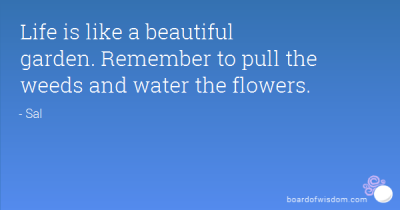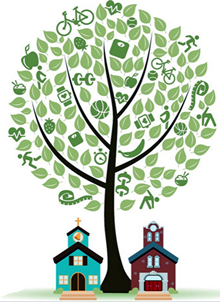 It is a rare occasion when either speaking to or meeting with family caregivers that I do not have tucked away this invaluable list of signs and symptoms of caregiver burnout to share with them before I leave. My advice to caregivers is to print this list out and place in a plastic sleeve and tape it to your bathroom mirror. Every single day you should be aware of these signs – often that creep in slowly- and zap our ability to cope, quickly leading to caregiver burnout.
It is a rare occasion when either speaking to or meeting with family caregivers that I do not have tucked away this invaluable list of signs and symptoms of caregiver burnout to share with them before I leave. My advice to caregivers is to print this list out and place in a plastic sleeve and tape it to your bathroom mirror. Every single day you should be aware of these signs – often that creep in slowly- and zap our ability to cope, quickly leading to caregiver burnout.
What should you do if you see yourself exhibiting these signs or symptoms? Be proactive, and seek out a caregiver support group, licensed professional counselor, Stephen Minister or pastoral counselor at your faith community or a healthcare professional.
Caregiver burnout is a state of physical, emotional, and mental exhaustion that may be accompanied by a change in attitude — from positive and caring to negative and unconcerned. … Caregivers who are “burned out” may experience fatigue, stress, anxiety, and depression. It can often lead to anger, rage, or guilt that results from unrelieved caring for a chronically ill dependent.
With over 44 million unpaid caregivers in the US alone, it is imperative that we are all looking out for others – this fast-growing and vulnerable population who desperately needs support, education, and access to resources. Caregiver burnout can lead to neglect and abuse for those whom they are caring for. It is a serious public health issue and too often goes unnoticed as caregivers tend to isolate themselves, especially when they are stressed.
Please print this list out and share with others who are caring for a loved one:
Signs and Symptoms of Caregiver Burnout
- Altered eating patterns
- Increased sugar consumption or use of alcohol or drugs
- Increased smoking or strong desire to start again
- Frequent headaches or sudden onset of back pain
- Increased reliance on over-the-counter pain remedies or prescribed drugs
- Irritability
- High levels of fear or anxiety
- Impatience
- The inability to handle one or more problems or crises
- Overreacting to commonplace accidents
- Overreacting to criticism
- Feelings of anger toward a spouse, child or older care recipient
- Alienation
- Feeling emotional withdrawal
- Feeling trapped
- Thinking of disappearing or running away
- Not being able to laugh or feel joy
- Withdrawing from activities and the lives of others
- Feeling hopeless
- Loss of compassion
- Resenting the care recipient and/or the situation
- Neglecting or mistreating the care recipient
- Frequently feeling totally alone even though friends and family are present
- Wishing simply “to have the whole thing over with”
- Playing the “If only” games; saying over and over “if only this would happen’; or “If only this had not happened”
Pam Brandon is President/Founder is AGE-u-cate Training Institute and a passionate advocate for older adults and those who serve them. For more information on our training for professional and family caregivers, please visit our website.

 I just can’t help but talk about gardening this time of year. I admit it – I’m addicted. It’s not uncommon for me to get my garden gloves on early on a Saturday morning and still have them on when at sundown. Once I start working in my garden, I just can’t stop – especially this time of year. So why am I going to talk about caregivers resentment and weeds in your garden?
I just can’t help but talk about gardening this time of year. I admit it – I’m addicted. It’s not uncommon for me to get my garden gloves on early on a Saturday morning and still have them on when at sundown. Once I start working in my garden, I just can’t stop – especially this time of year. So why am I going to talk about caregivers resentment and weeds in your garden? Faith-based hospital organizations recognize the impact of partnerships with their local faith-based communities. The important role of faith community nursing programs is to bridge the gap in helping congregational nurses to meet the needs of their faith communities.
Faith-based hospital organizations recognize the impact of partnerships with their local faith-based communities. The important role of faith community nursing programs is to bridge the gap in helping congregational nurses to meet the needs of their faith communities.